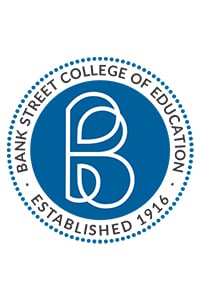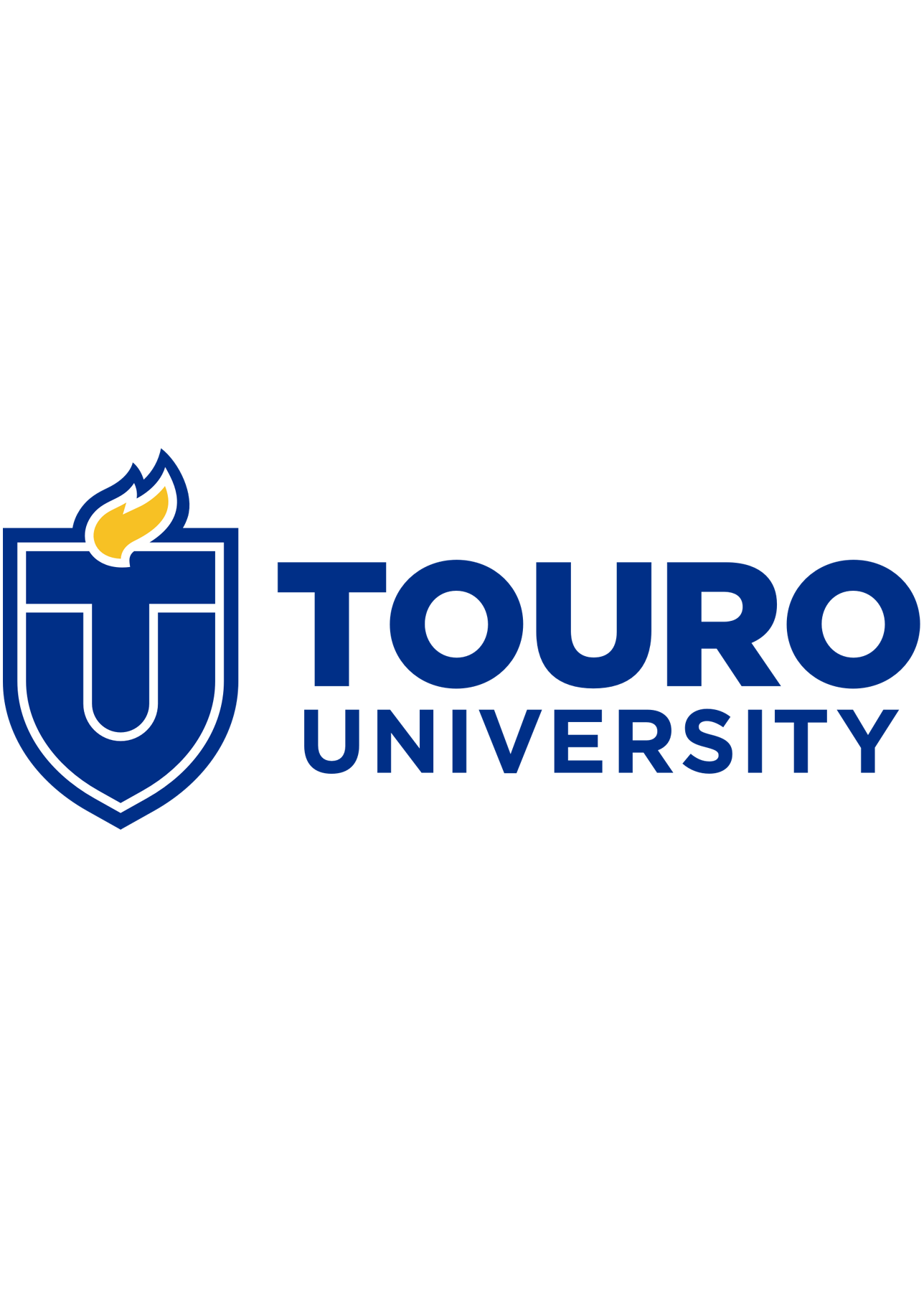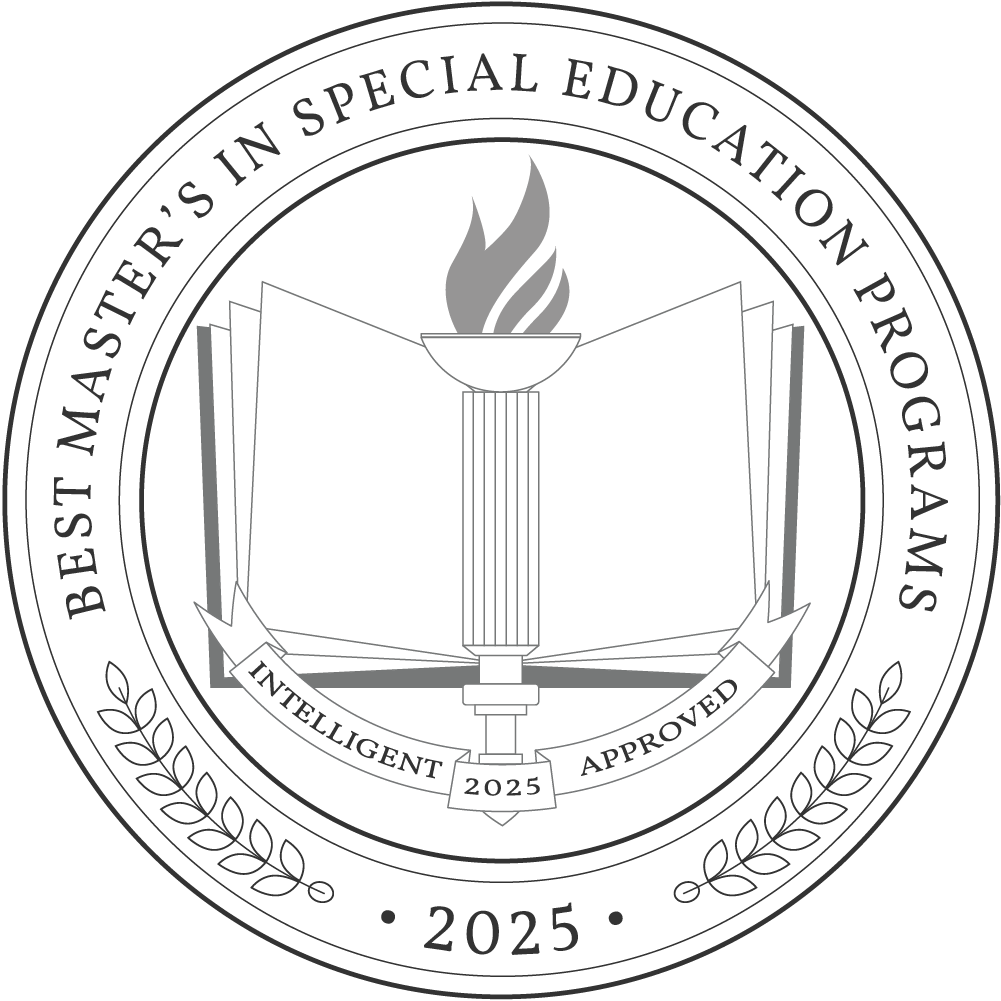A master’s in special education equips students with the knowledge and skills necessary to support the diverse needs of students with disabilities. Graduates are prepared for roles such as special education teacher, educational diagnostician, behavior analyst, or special education coordinator.
According to the Bureau of Labor Statistics, special education teachers earn an average salary of $65,910 per year, with the potential for higher earnings when considering experience and location. The program typically takes one to two years to complete, depending on factors such as full-time or part-time enrollment and previously completed coursework. Cost varies, although the National Center for Education Statistics reports an average expense for tuition and fees of $12,000 to $30,000 for master’s degree programs, based on factors such as type of institution, residency status, and program features.
Why Trust Us
The Intelligent.com Higher Education Team is dedicated to providing students with independent, equitable school and program rankings and well-researched resources. Our expert-driven articles cover topics related to online colleges and programs, paying for school, and career outlooks. We use data from the U.S. Department of Education’s College Scorecard, the National Center for Education Statistics, and other reputable educational and professional organizations. Our academic advisory team reviews content and verifies accuracy throughout the year for the most current information. Partnerships do not influence rankings or editorial decisions.
- Analyzed over 2,000 national, accredited, and nonprofit colleges and universities
- 800+ rankings pages are reviewed and updated yearly
- Content is informed by reputable sources, surveys, and interviews with academic advisors and other experts
- Over 100 data points are reviewed for accuracy and quality throughout the year, including sources
How we rank schools
Our list features the best Special Education degree programs at top colleges nationwide. Each school featured is a nonprofit, accredited institution — either public or private — with a high standard of academic quality for post-secondary institutions.
We evaluated each school’s program on tuition costs, admission, retention and graduation rates, faculty, reputation, and the student resources provided for online students. We collected data from trusted sources like the National Center for Education Statistics, individual school and program websites, school admissions counselors, and other data sources. Then, we calculated the Intelligent Score on a scale of 0 to 100 based on the following criterion:
Academic Quality:
- Admission rate versus enrollment rate
- Retention rate of students who return after year one
- Accreditation status (regional and programmatic)
- Nonprofit status, both private and public institutions
Graduation Rate
- Overall graduation rate
- Total number of currently enrolled students, including diversity metrics
- Student-to-faculty ratio
Cost and ROI
- In-state and out-of-state per-credit tuition rates and fees
- Required credits to graduate
- Earning potential after graduation
- Availability of federal student loans, scholarships, and other financial aid options
Student Resources
- Available student services for online-only and hybrid programs
- On-campus amenities like tutoring centers and the number of libraries
Read more about our ranking methodology.
Best 39 Accredited Master’s in Special Education Degree Programs
FiltersInstitution Type
Status
- Intelligent Score
- Alphabetically By University Name
- Acceptance Rate
- Enrollment
- In-state Graduate Tuition
- Out-of-state Graduate Tuition
- In-state Undergraduate Tuition
- Out-of-state Undergraduate Tuition

Vanderbilt Peabody College
Intelligent Score: 97.07In-state: $52,781
Out-of-state: $52,781
In-state: $50,082
Out-of-state: $50,082
SAT: 1470-1570
ACT: 33-35
$2,245
On-Campus
Southern Association of Colleges and Schools Commission on Colleges
30-60

JHU School of Education
Intelligent Score: 97.07In-state: $88,976
Out-of-state: $88,976
In-state: $91,435
Out-of-state: $91,435
SAT: 1520-1560
ACT: 34-35
$1,086
On-Campus
Middle States Commission on Higher Education
39

The College of New Jersey
Intelligent Score: 96.93In-state: $13,239
Out-of-state: $25,217
In-state: $14,554
Out-of-state: $14,554
SAT: 1140-1320
ACT: 24-30
$980
On-Campus
Association for Advancing Quality in Educator Preparation
33

Bank Street Graduate School of Education
Intelligent Score: 96.16In-state: NA
Out-of-state: NA
In-state: $30,668
Out-of-state: $30,668
SAT: N/A
ACT: N/A
$1,868
On-Campus, Online
Association for Advancing Quality in Educator Preparation
30-54

University of St. Thomas
Intelligent Score: 93.66In-state: $46,348
Out-of-state: $46,348
In-state: $24,589
Out-of-state: $24,589
SAT: 1130-1340
ACT: 23-29
$685
On-Campus, Online
Higher Learning Commission
36

University of Washington
Intelligent Score: 93.02In-state: $10,629
Out-of-state: $37,998
In-state: $16,278
Out-of-state: $16,278
SAT: 1200-1453
ACT: 27-33
Resident: $870
Non-Resident: $1,571
On-Campus
Council for the Accreditation of Educator Preparation
45

CUNY Hunter College
Intelligent Score: 92.69In-state: $6,930
Out-of-state: $14,880
In-state: $11,090
Out-of-state: $11,090
SAT: 1170-1340
ACT: 25-31
Resident: $470
Non-Resident: $855
On-Campus
Middle States Commission on Higher Education
43-55

Gonzaga University
Intelligent Score: 92.66In-state: $46,060
Out-of-state: $46,060
In-state: $17,296
Out-of-state: $17,296
SAT: 1160-1350
ACT: 25-30
$1,050
On-Campus
National Council for Accreditation of Teacher Education
32

George Mason University
Intelligent Score: 92.46In-state: $9,510
Out-of-state: $32,970
In-state: $12,594
Out-of-state: $12,594
SAT: 1100-1300
ACT: 24-30
Resident: $727
Non-Resident: $927
On-Campus, Online, Blended
Southern Association of Colleges and Schools Commission on Colleges
30

CUNY Brooklyn College
Intelligent Score: 91.97In-state: $6,930
Out-of-state: $14,880
In-state: $11,090
Out-of-state: $11,090
SAT: 1170-1340
ACT: 25-31
Resident: $470
Non-Resident: $855
On-Campus
Middle States Commission on Higher Education
30-45

California Lutheran University
Intelligent Score: 91.46In-state: $45,500
Out-of-state: $45,500
In-state: $20,450
Out-of-state: $20,450
SAT: 1070-1240
ACT: 20-27
$865
On-Campus
National Council for Accreditation of Teacher Education
39

Rhode Island College
Intelligent Score: 90.88In-state: $8,835
Out-of-state: $23,310
In-state: $8,316
Out-of-state: $8,316
SAT: 870-1100
ACT: 18-25
Resident: $510
Non-Resident: $993
On-Campus
New England Commission of Higher Education
30-35

Syracuse University
Intelligent Score: 90.11In-state: $53,432
Out-of-state: $53,432
In-state: $40,392
Out-of-state: $40,392
SAT: N/A
ACT: N/A
$1,872
On-Campus
Association for Advancing Quality in Educator Preparation
30-43

Fordham University
Intelligent Score: 89.72In-state: $54,730
Out-of-state: $54,730
In-state: $23,112
Out-of-state: $23,112
SAT: 1230-1410
ACT: 27-32
$1,638
On-Campus
Higher Learning Commission
30

University of Scranton
Intelligent Score: 89.36In-state: $46,684
Out-of-state: $46,684
In-state: $11,580
Out-of-state: $11,580
SAT: 1100-1280
ACT: 23-28
$965
On-Campus
Middle States Commission on Higher Education
36

Northeastern Illinois University
Intelligent Score: 89.23In-state: $9,893
Out-of-state: $19,786
In-state: $7,790
Out-of-state: $7,790
SAT: 810-1010
ACT: 15-21
Resident: $464
Non-Resident: $927
On-Campus
Council for Exceptional Children
47

Touro College
Intelligent Score: 89.11In-state: $18,283
Out-of-state: $18,283
In-state: $12,618
Out-of-state: $12,618
SAT: N/A
ACT: N/A
$660
On-Campus
Middle States Commission on Higher Education
36-42

CUNY College of Staten Island
Intelligent Score: 88.74In-state: $6,930
Out-of-state: $14,880
In-state: $11,090
Out-of-state: $11,090
SAT: 1170-1340
ACT: 25-31
Resident: $470
Non-Resident: $855
On-Campus
Middle States Commission on Higher Education
33
How to Choose a Master’s in Special Education Degree Program
Choose your area of study
When choosing your area of study, consider your passion, strengths, and career goals. Research specializations such as autism spectrum disorders, learning disabilities, or emotional and behavioral disorders. Evaluate each specialization’s job market demand, salary prospects, and alignment with your interests. Reflect on your experiences working with individuals with disabilities and consider which population you are most passionate about serving. Explore each specialization’s course offerings and faculty expertise to ensure it aligns with your educational and professional aspirations.
Research schools and programs
Begin by identifying accredited institutions offering the program. Evaluate factors such as program reputation, faculty expertise, and specialization options. Explore each school’s website to gather information on curriculum, available resources, and program outcomes. Utilize online forums and alumni networks to gain insights from current and former students. Consider logistical factors like location, program format, and cost. Reach out to admissions officers or program coordinators to ask specific questions and request additional information. By conducting thorough research, you can make an informed decision that aligns with your academic and career goals in special education.
Prepare for tests and applications
Preparing for tests and applications is essential for successful admission. Begin by familiarizing yourself with the specific admission requirements of each program, including standardized tests like the GRE or MAT. Dedicate time to study for these exams using study guides, practice tests, and online resources. Gather all necessary documents, such as transcripts, letters of recommendation, and a compelling personal statement outlining your passion for special education. Pay attention to application deadlines and submit your materials as early as possible. Consider seeking feedback on your application materials from mentors or advisors to ensure they effectively showcase your qualifications.
Select your program
Choosing the right program involves careful consideration of factors such as program accreditation, faculty expertise, curriculum structure, and specialization options. Evaluate each program based on its alignment with your career goals, preferred teaching approach, and the population of students you wish to serve. Consider logistical factors like location, program format (online or on-campus), and cost. Research program outcomes, including job placement rates and alumni satisfaction. Reach out to current students or alumni for insights into their experiences. Ultimately, select a program that offers the resources, support, and opportunities necessary to thrive in the field of special education.
Determine how you’ll pay for your degree
Begin by completing the Free Application for Federal Student Aid (FAFSA) to determine eligibility for federal student loans, grants, and work-study programs. Research scholarships, fellowships, and assistantships offered by the school or external organizations. Explore tuition reimbursement programs through employers or government agencies. Consider part-time work or internships in the field to gain experience and offset costs. Create a budget to manage expenses and prioritize financial aid options that minimize student debt. By leveraging available resources and planning ahead, you can make earning your degree more financially manageable.
Next, we compared this comprehensive list of online PhD programs to a list of aggregated college rankings from reputable publications like the U.S. News & World Report among others to simplify a student’s college search. We pored through these rankings so students don’t have to.
Master’s in Special Education Programs That Might Interest You
Learn about start dates, transferring credits, availability of financial aid, and more by contacting the universities below.
What Can You Expect From a Master’s in Special Education Degree Program?
A master’s in special education offers prospective students a comprehensive education in understanding and addressing the unique needs of students with cognitive and physical challenges. Students can expect to learn about disabilities, assessment techniques, Individualized Education Program (IEP) development, behavior management strategies, and inclusive teaching practices.
The program typically takes one to two years to complete, depending on factors such as full-time or part-time enrollment and prior coursework. Some programs may require students to complete in-person practicum experiences, student teaching placements, or residencies to gain hands-on experience working with students with disabilities. Students may have the opportunity to specialize in areas such as autism spectrum disorders or learning disabilities. Prospective students should review program requirements carefully to ensure they align with their career goals and preferences for experiential learning opportunities.
Potential courses you’ll take in a master’s in special education degree program
- Foundations of Special Education. Provides an overview of the historical, legal, and theoretical foundations of special education, examining key legislation, policies, and ethical considerations. Students learn about the diverse needs of students with disabilities and explore strategies for promoting inclusion and equity in educational settings.
- Assessment and Evaluation in Special Education. Focuses on principles and practices of assessing students with disabilities, including formal and informal assessment methods, data collection techniques, and interpretation of assessment results. Students learn to use assessment data to develop Individualized Education Programs (IEPs) and make informed instructional decisions to support student learning and progress.
- Behavior Management and Positive Behavior Support. Explores theories and strategies for managing challenging behaviors and promoting positive behavior support in students with disabilities. Students learn about functional behavior assessment, behavior intervention planning, and evidence-based practices for addressing behavioral challenges in educational settings.
- Differentiated Instruction and Universal Design for Learning. Examines instructional strategies and accommodations to meet the diverse learning needs of students with disabilities. Students learn about universal design for learning (UDL) principles, differentiated instruction techniques, and assistive technology tools to create inclusive and accessible learning environments for all students.
- Collaboration and Consultation in Special Education. Focuses on building effective partnerships between special education professionals, general education teachers, families, and community stakeholders. Students learn communication skills, conflict resolution strategies, and collaborative problem-solving techniques to promote successful collaboration and support student outcomes.
Master’s in Special Education Degree Frequently Asked Questions
How do I apply to a master's in special education degree program?
To apply to a master’s program, gather required documents such as transcripts, letters of recommendation, and a personal statement outlining your passion for special education. Some programs may require GRE scores or proof of teaching experience. Complete the online application form and submit all materials by the specified deadline. If possible, discuss program-specific requirements with an admissions counselor before applying to ensure you meet all criteria. Admissions counselors can provide valuable guidance and support throughout the application process, helping you present your qualifications effectively and increase your chances of admission.
How much does a master's in special education degree cost?
The cost of a master’s in special education varies widely depending on factors like institution, program format, and location. On average, tuition ranges from $12,000 to $30,000, as reported by the National Center for Education Statistics. Students should also budget for additional expenses such as textbooks, technology fees, and living expenses. Online programs may offer flexibility, but they can have similar tuition costs along with potential technology or online learning platform fees.
How long does it take to earn a master's in special education degree?
Generally, full-time students can complete a master’s program in one to two years, while part-time students may take longer. Online programs may offer flexibility but can have similar completion times as on-campus programs. However, some online programs may offer accelerated options, while others offer asynchronous classes that allow students to take courses as their time permits. The total number of required credits also impacts program length, with some programs requiring more credits for completion. Prospective students should consider their schedule, career goals, and program requirements when choosing between full-time or part-time enrollment.

